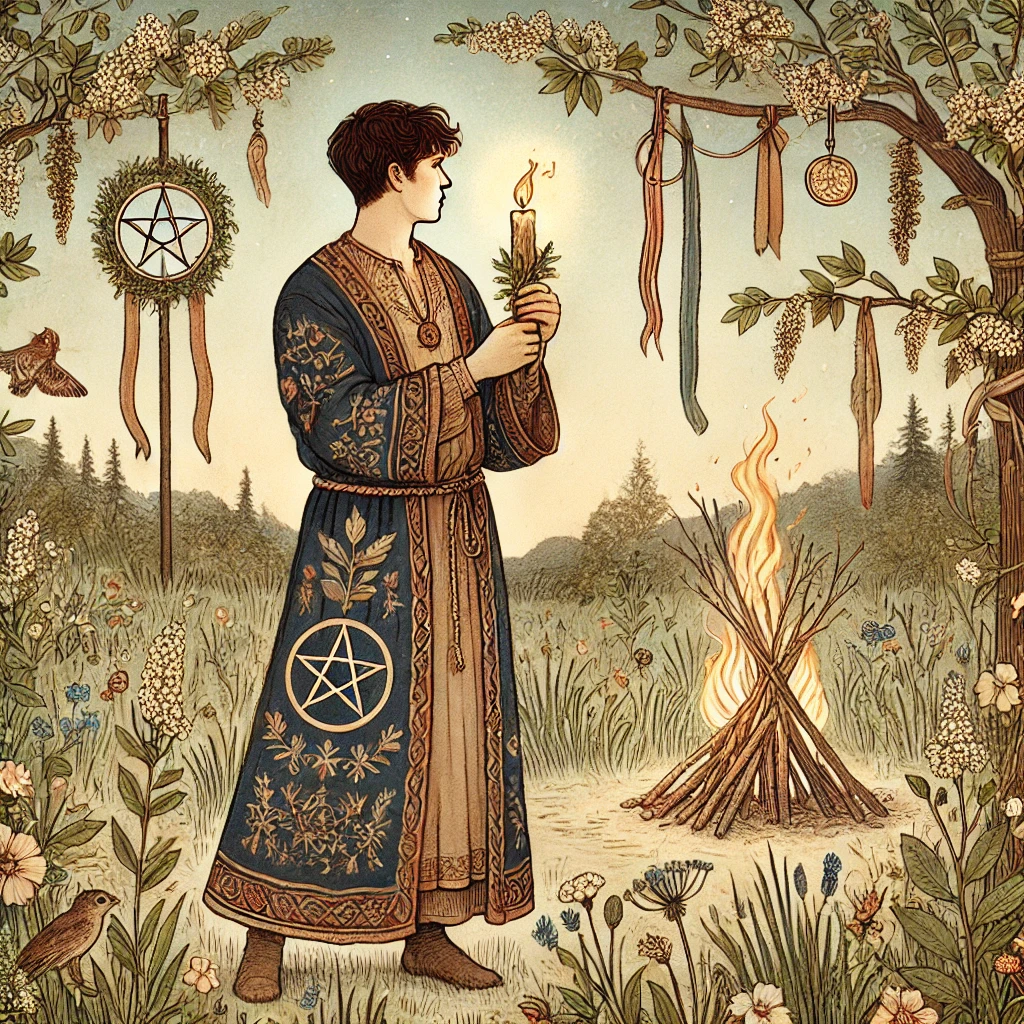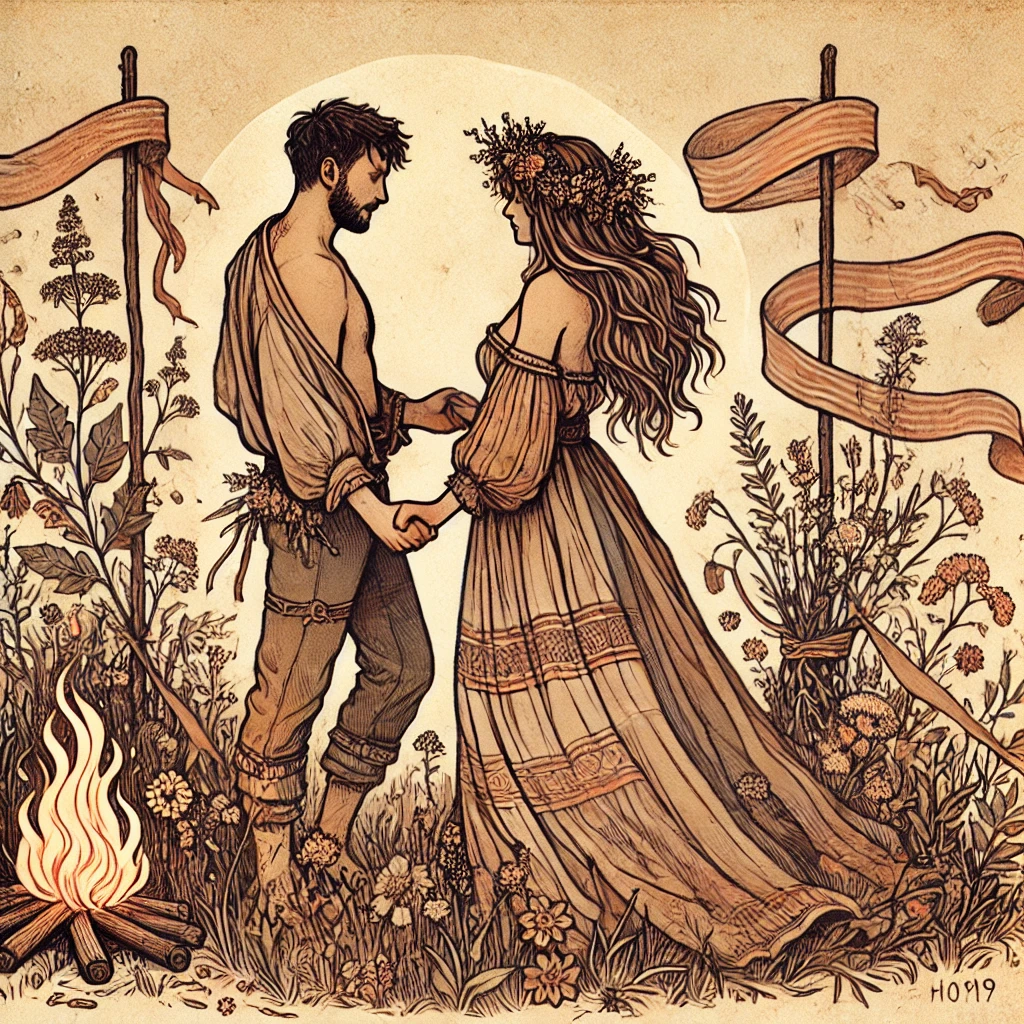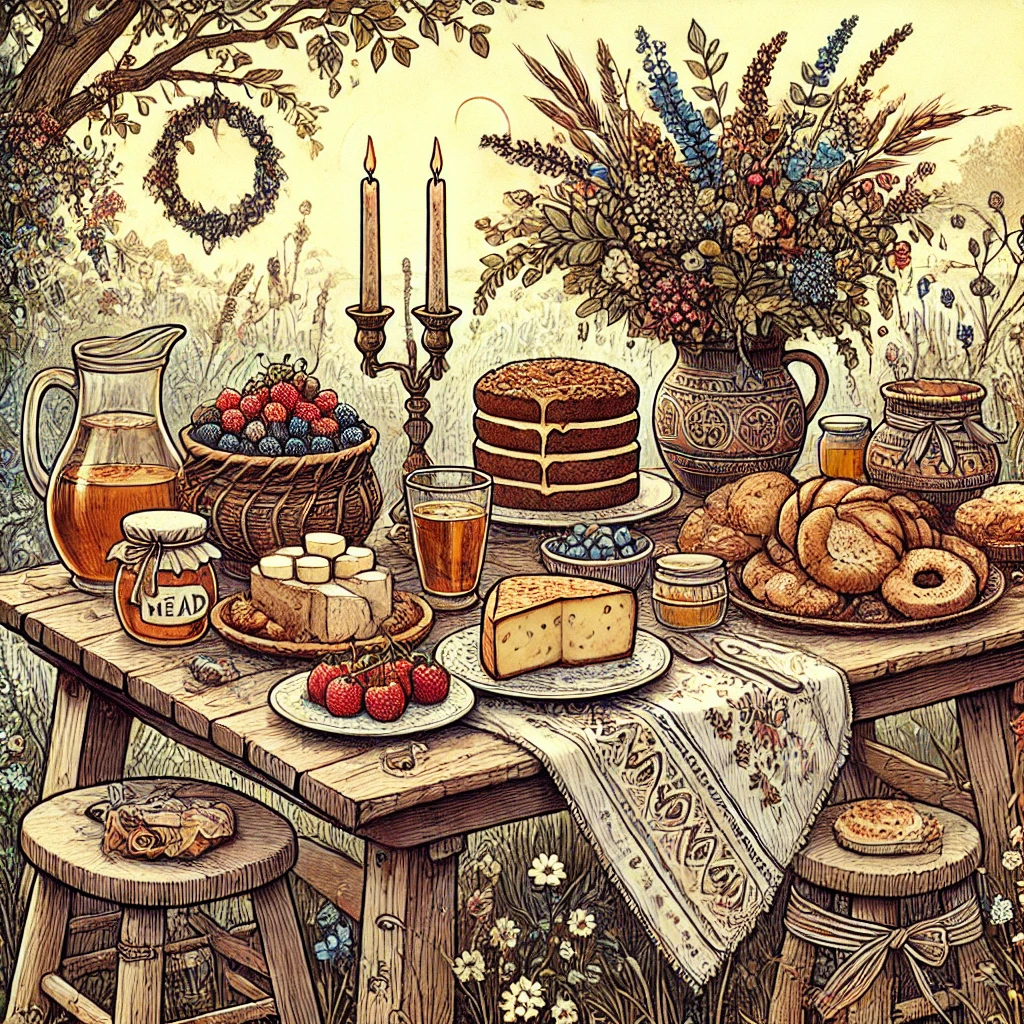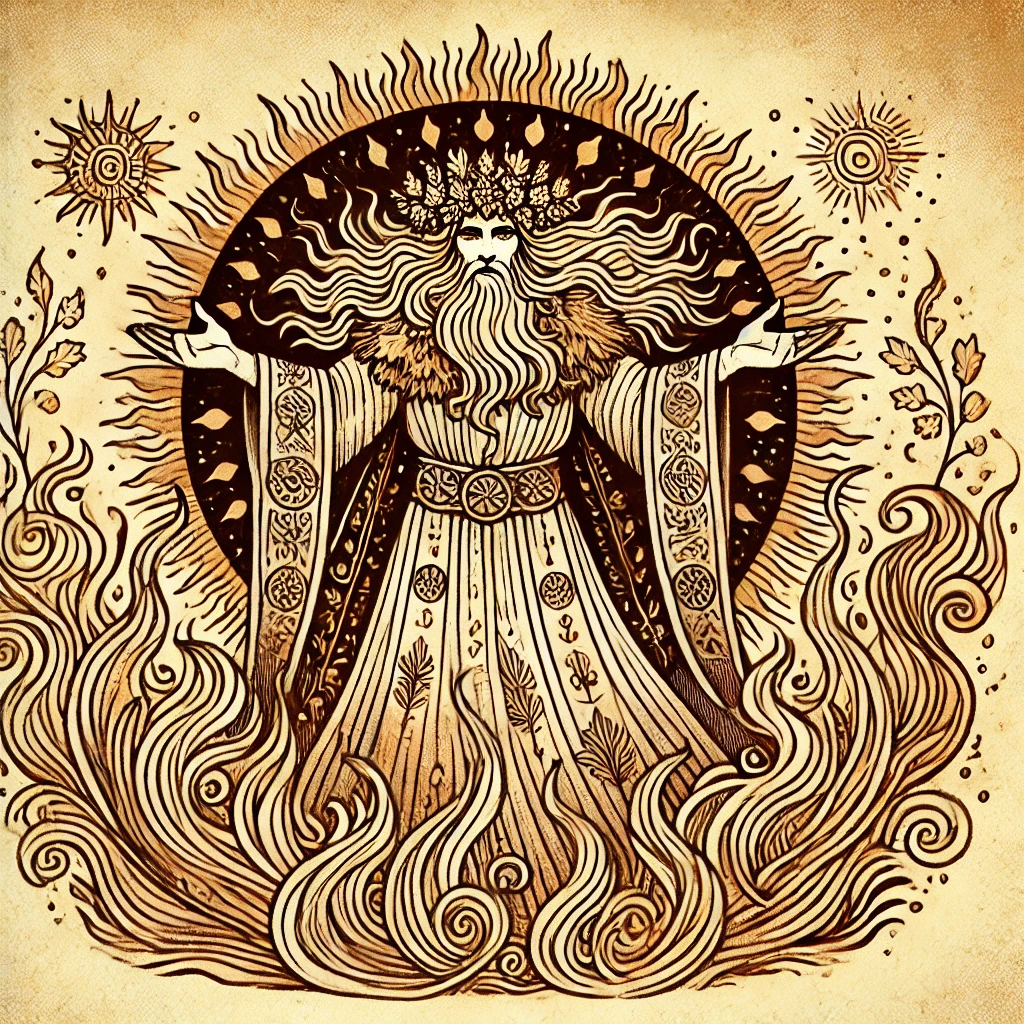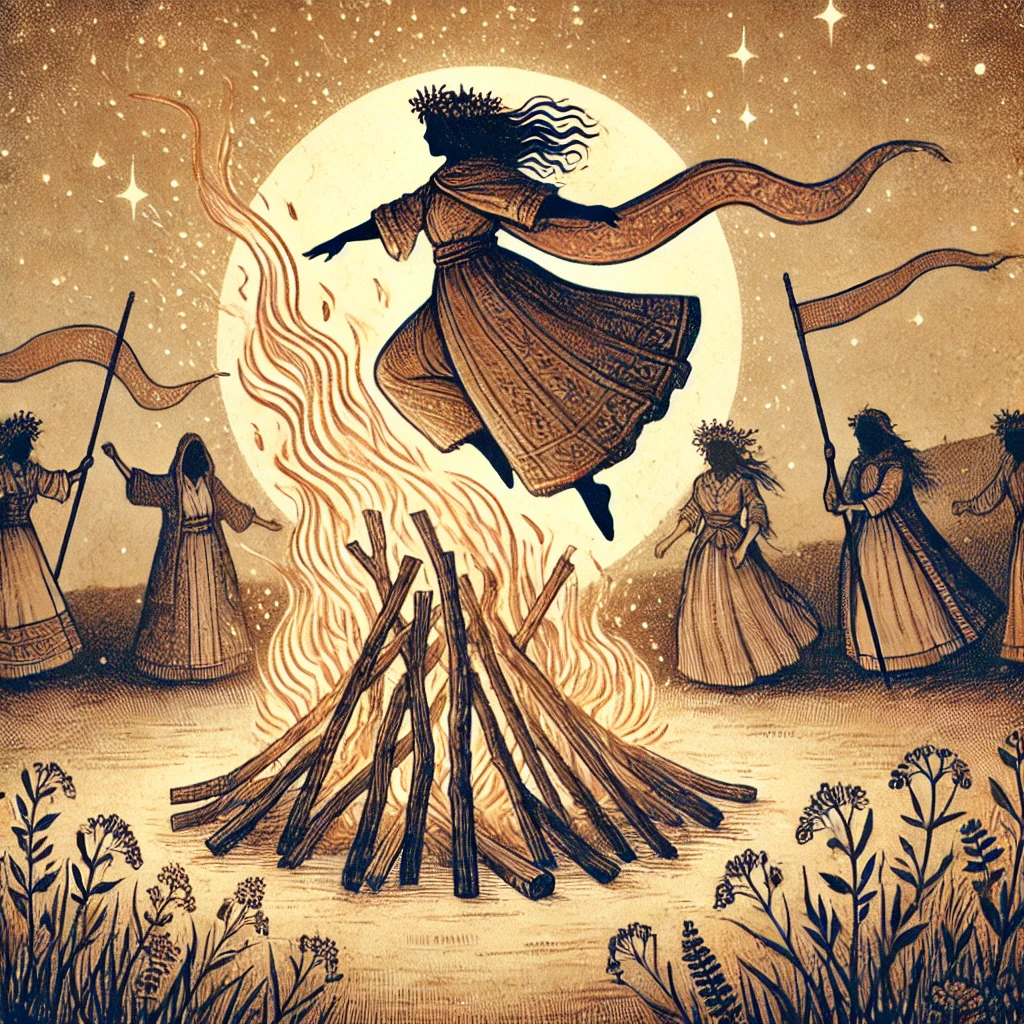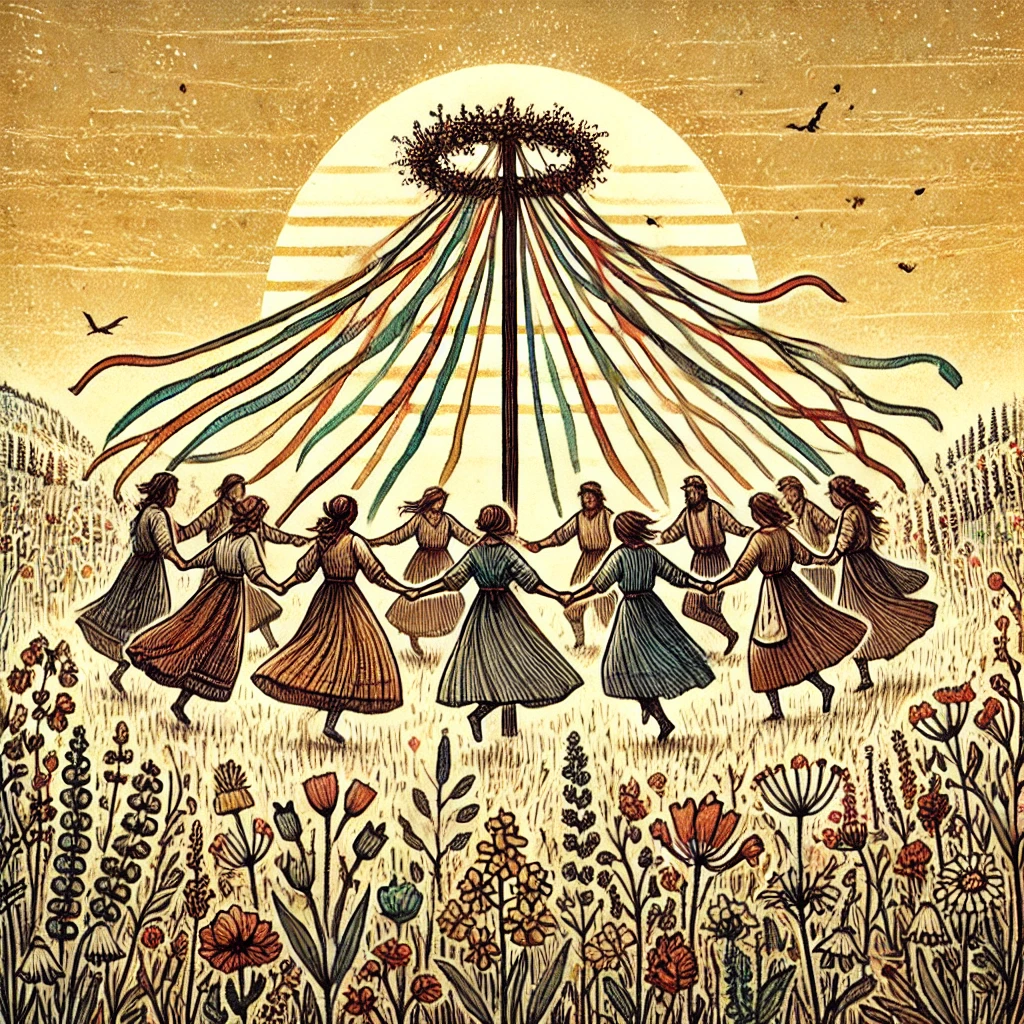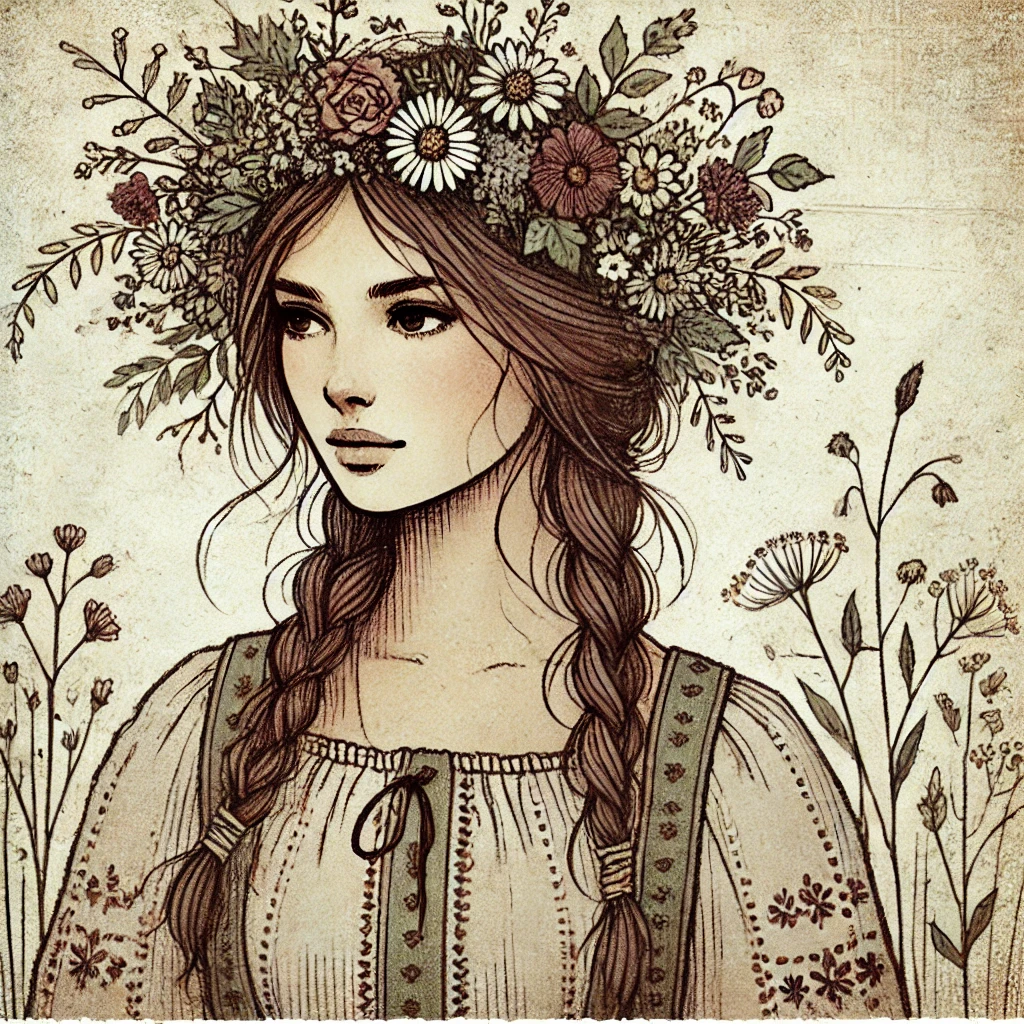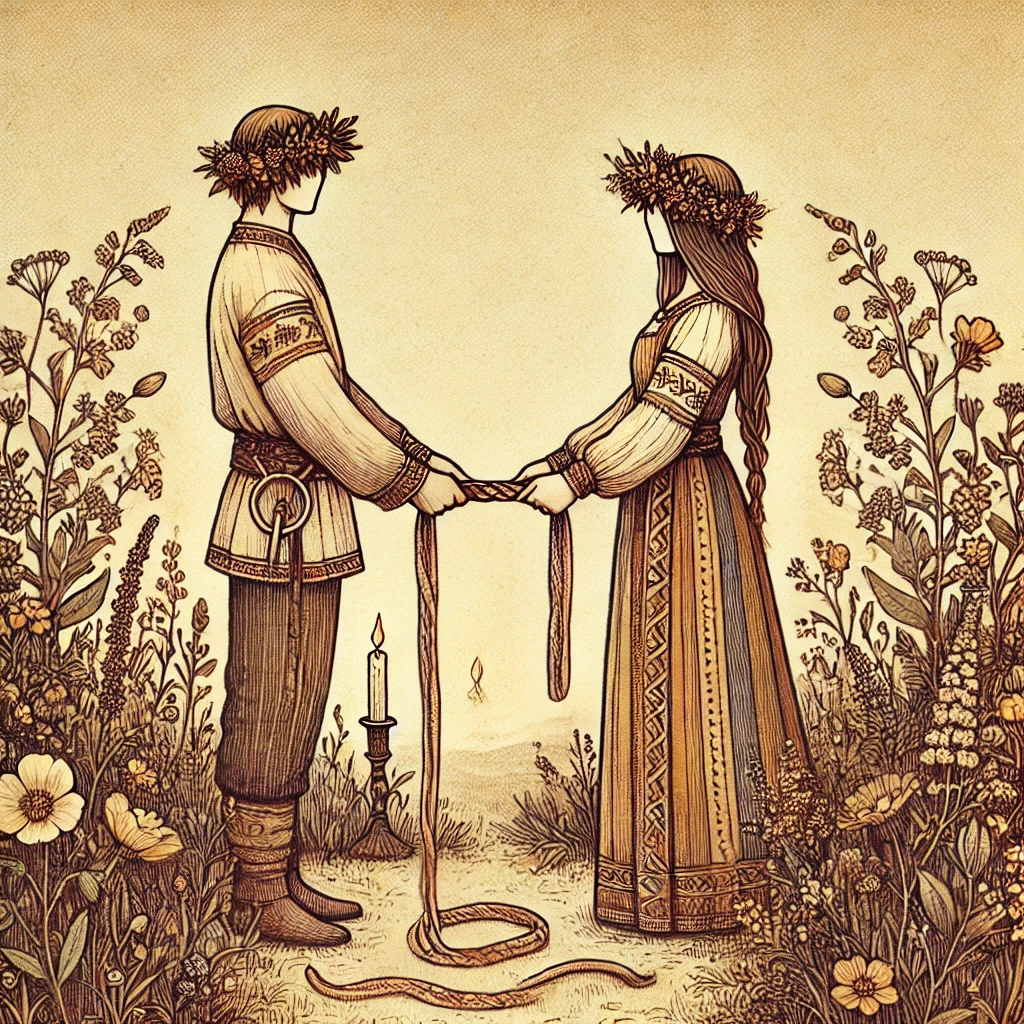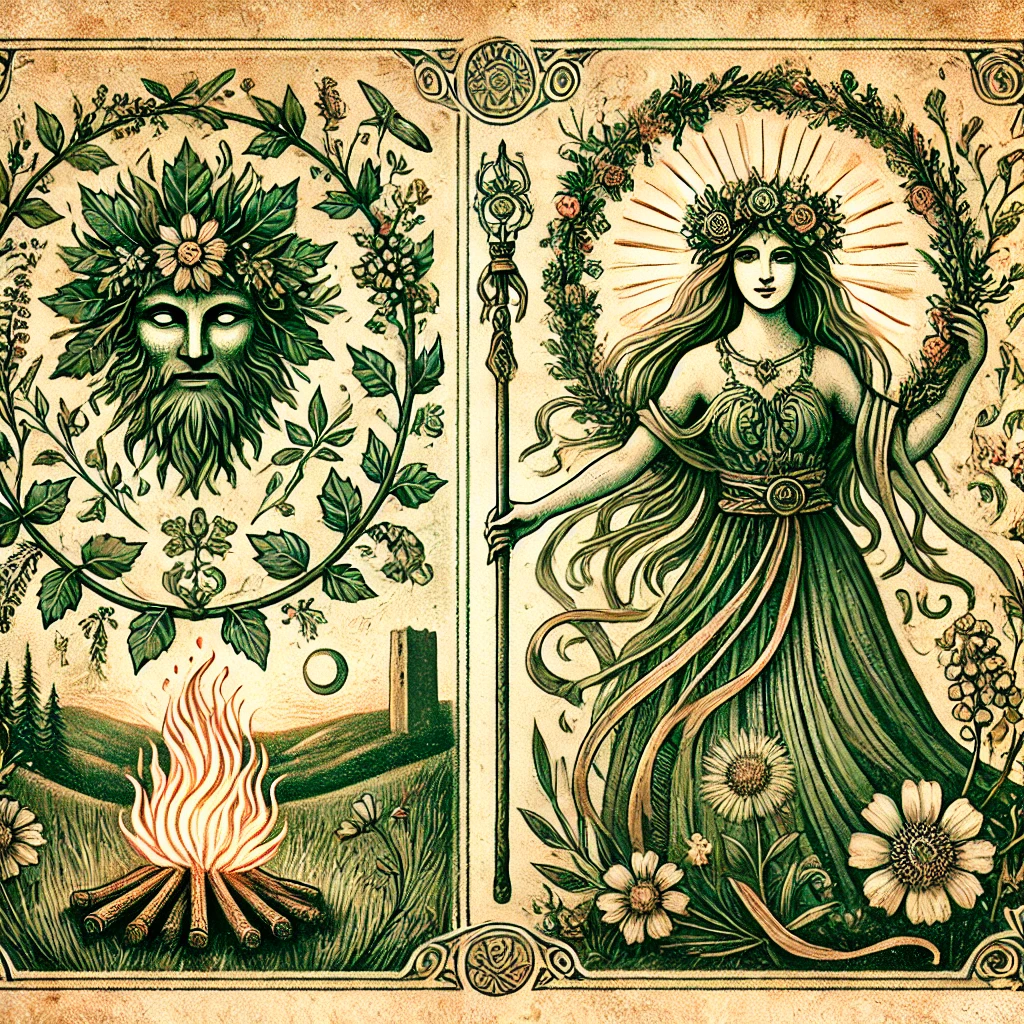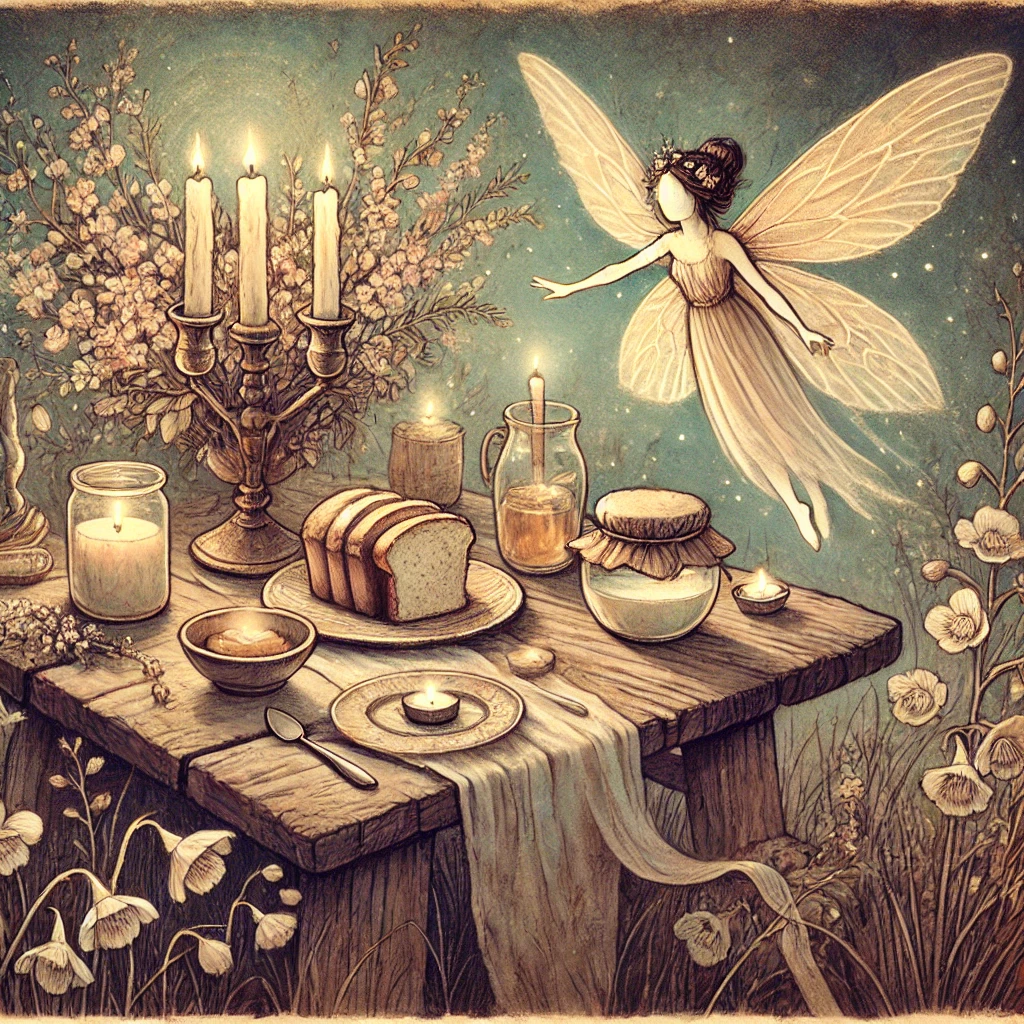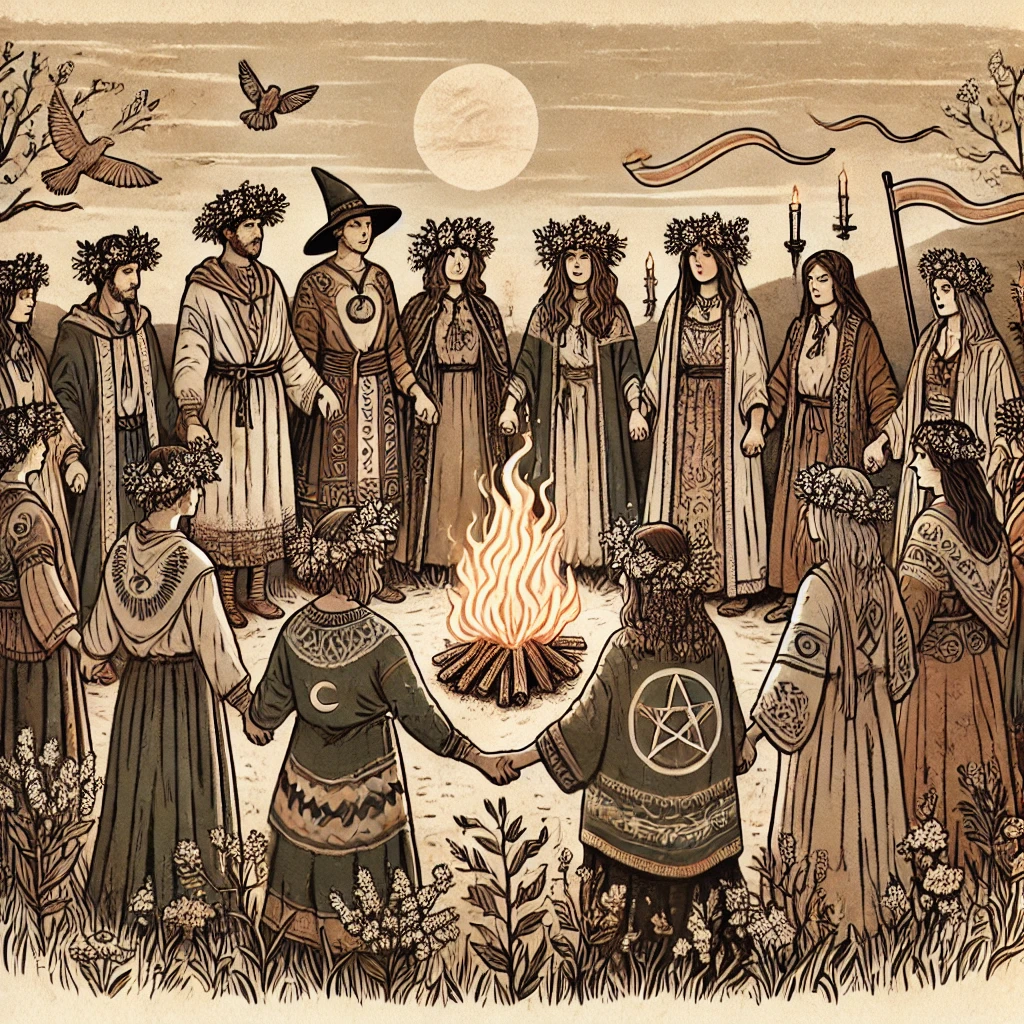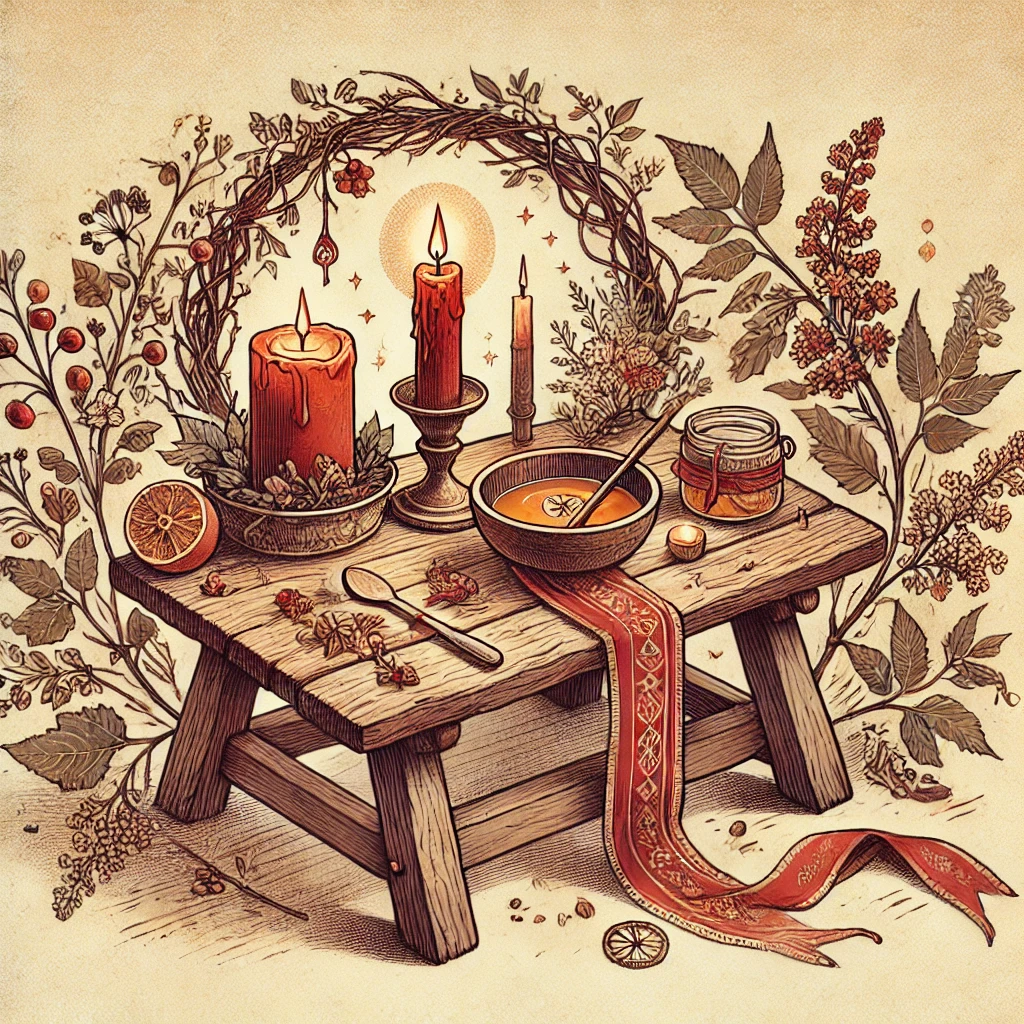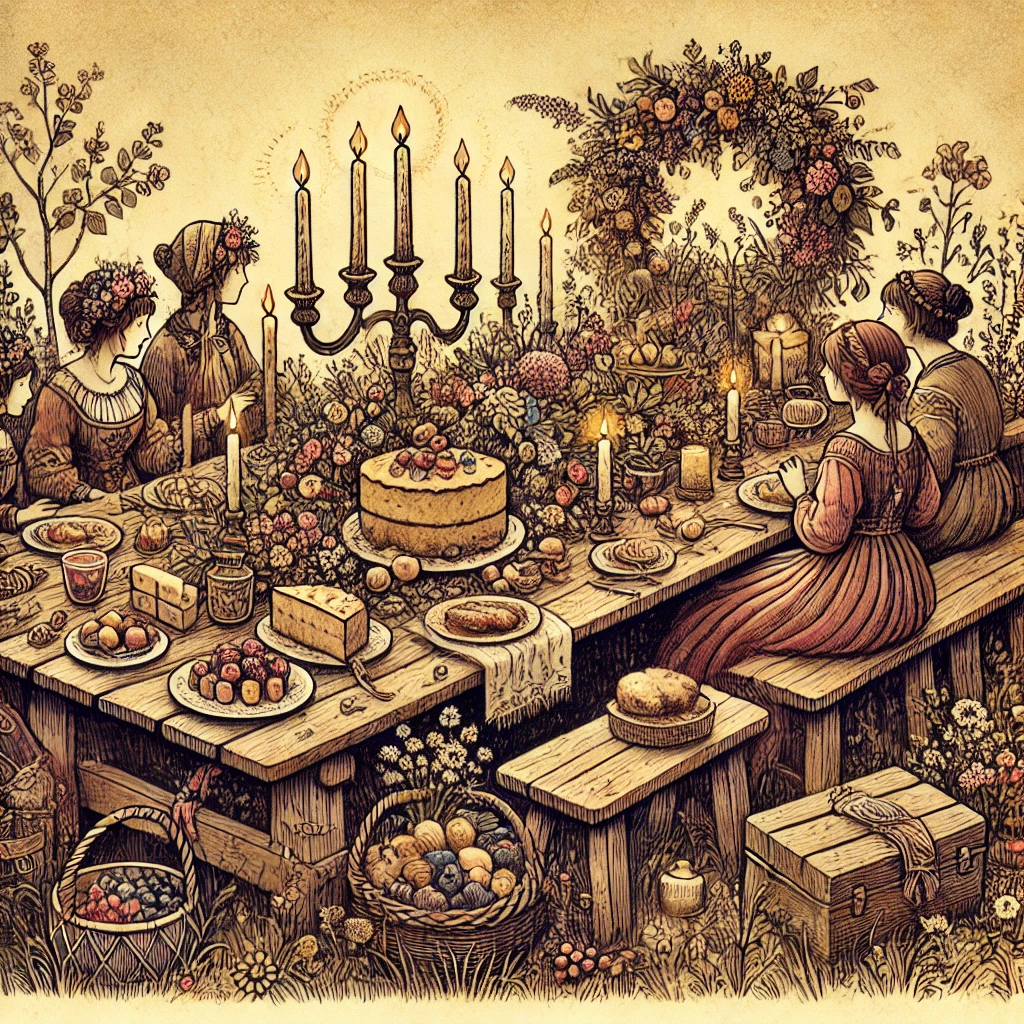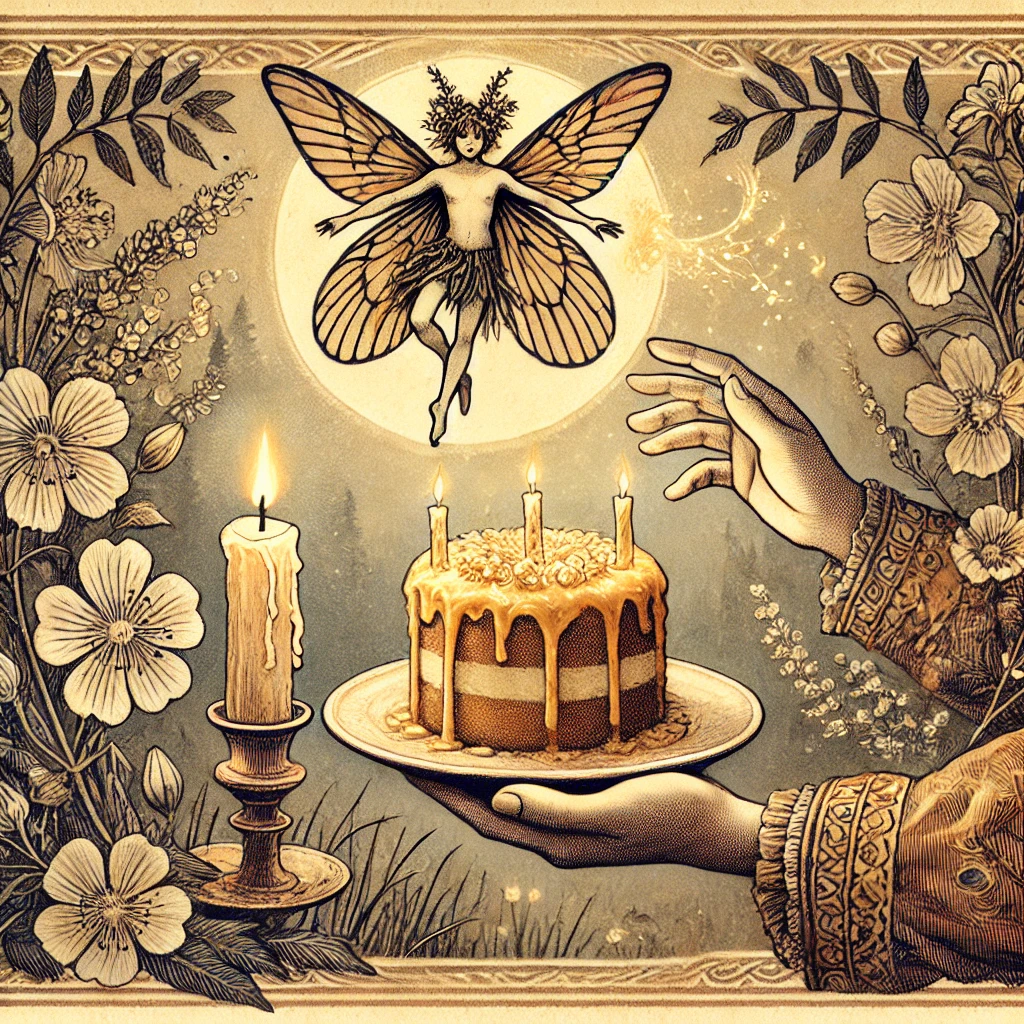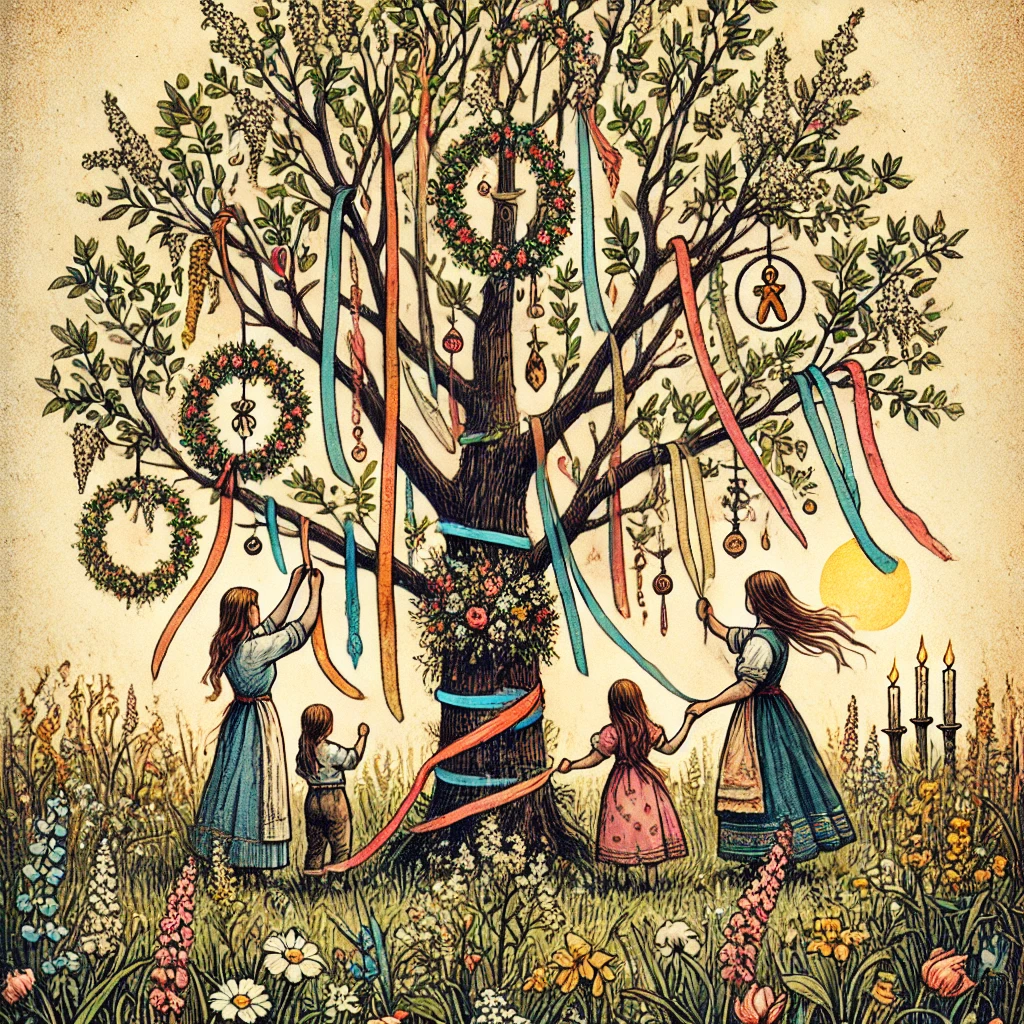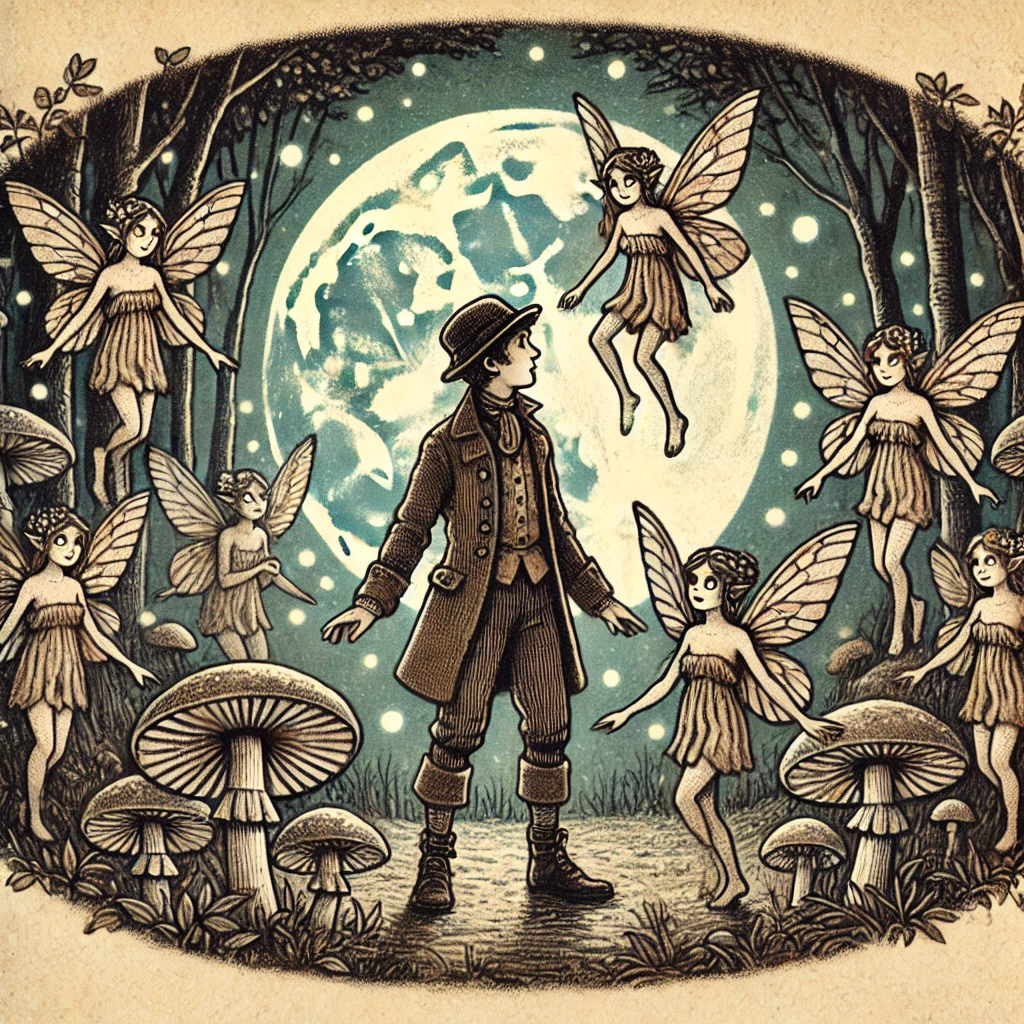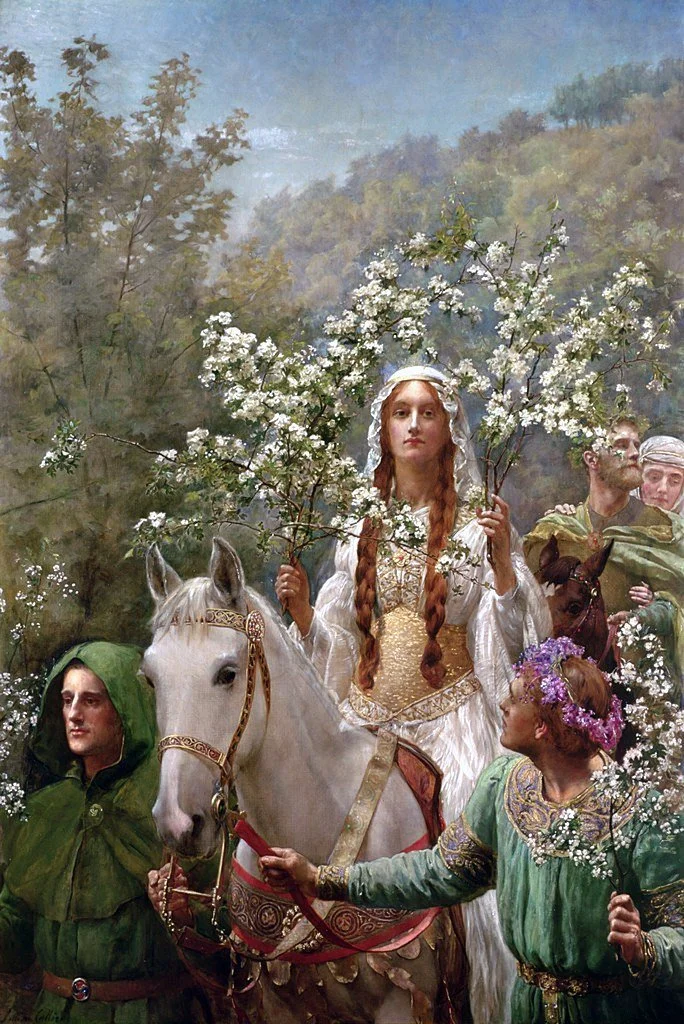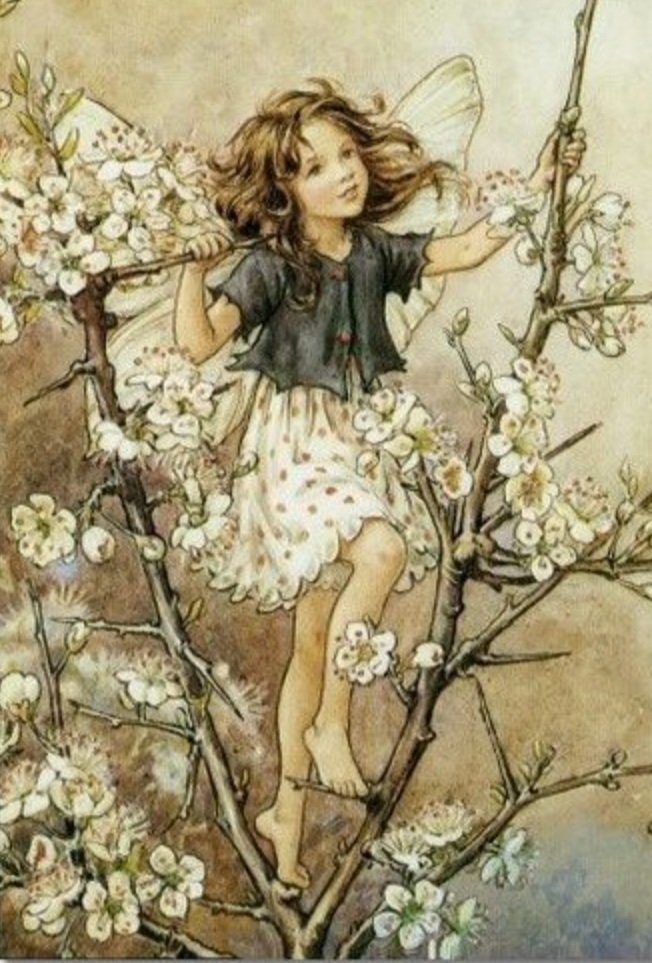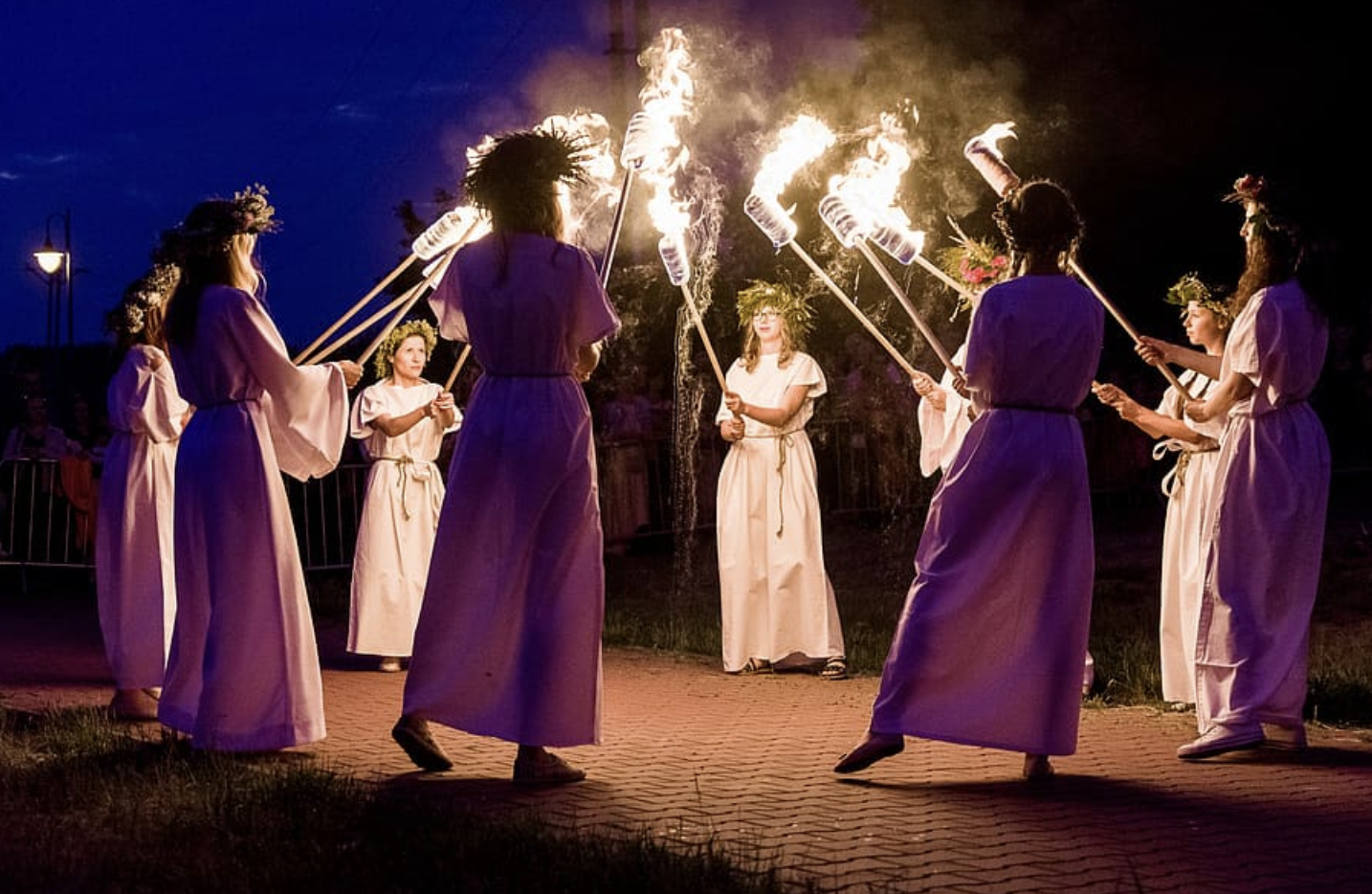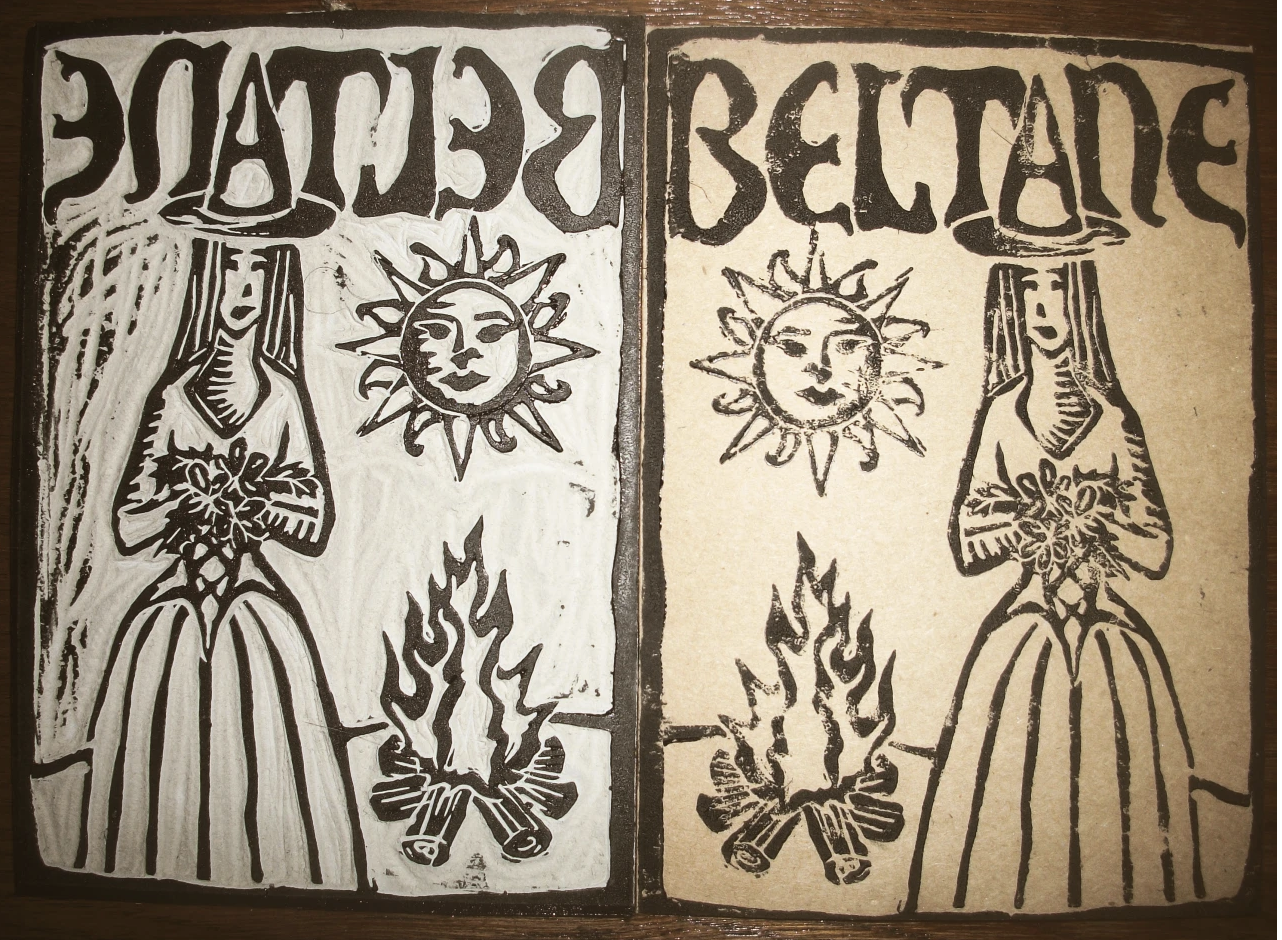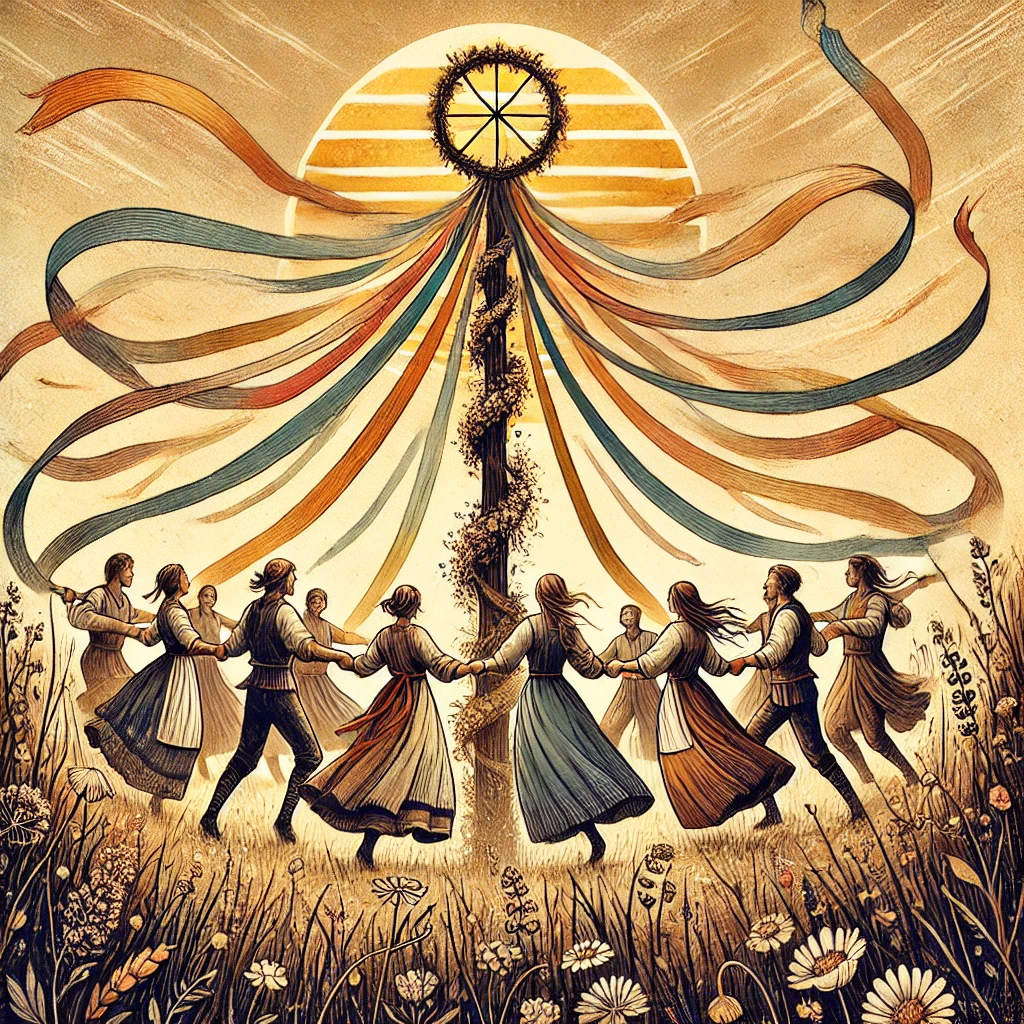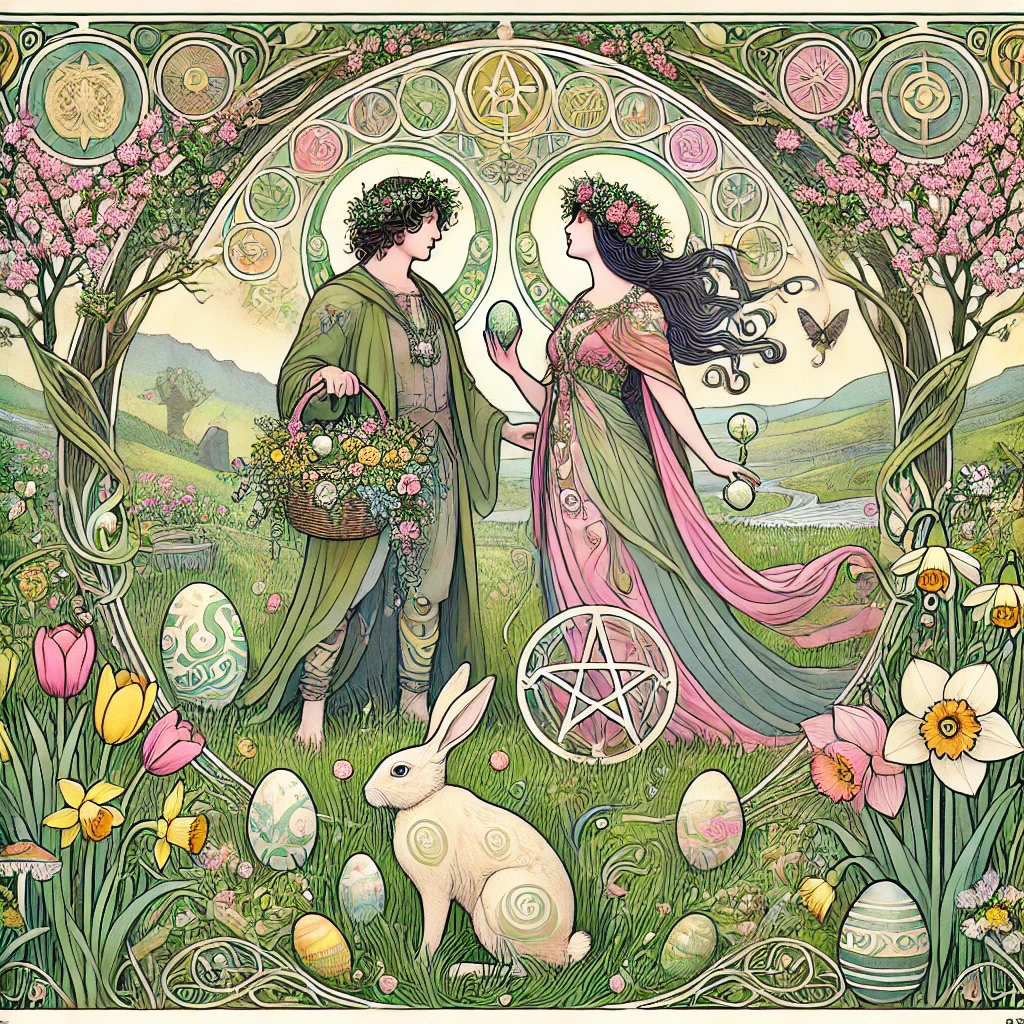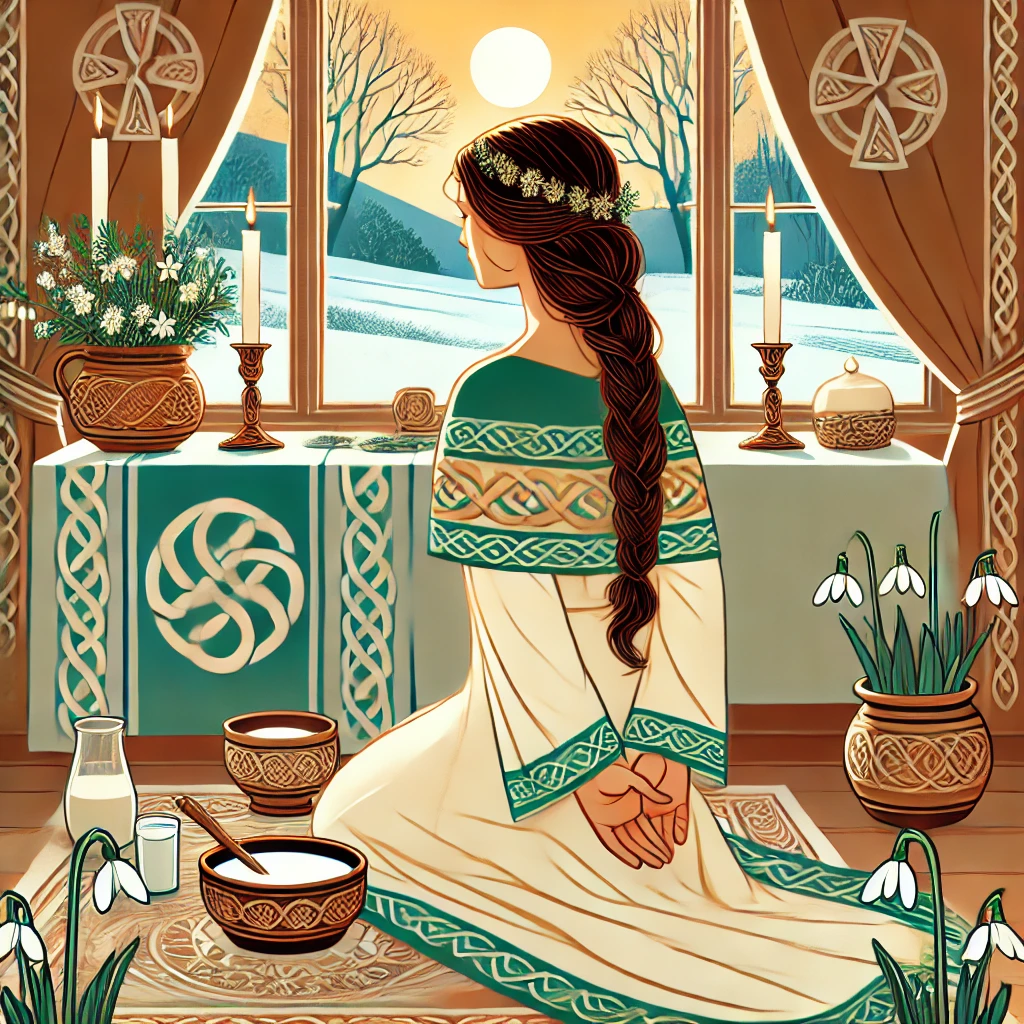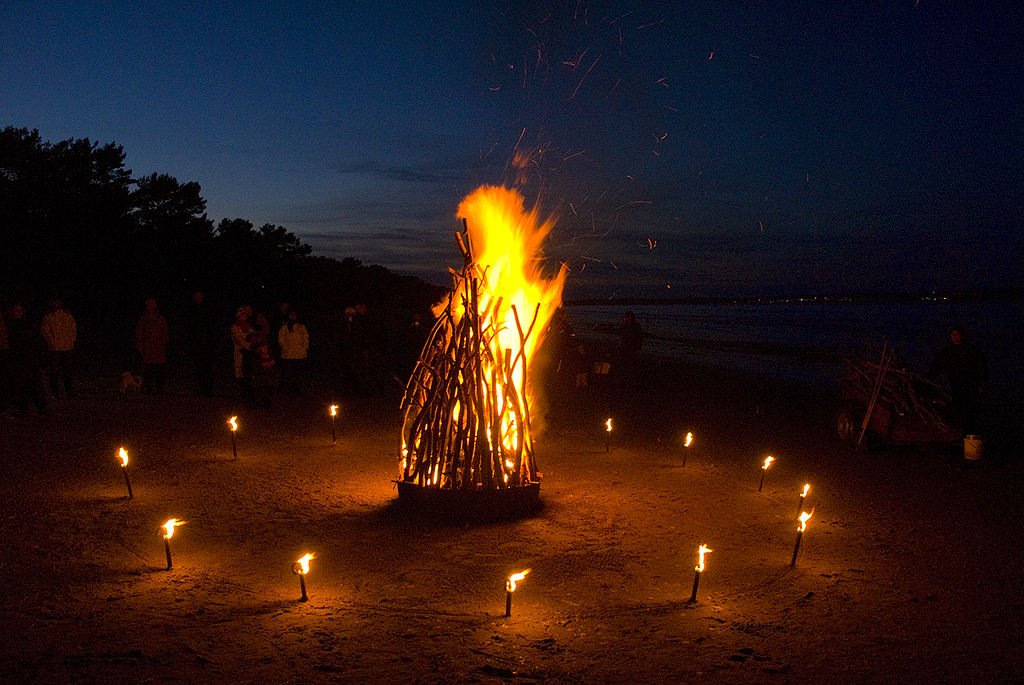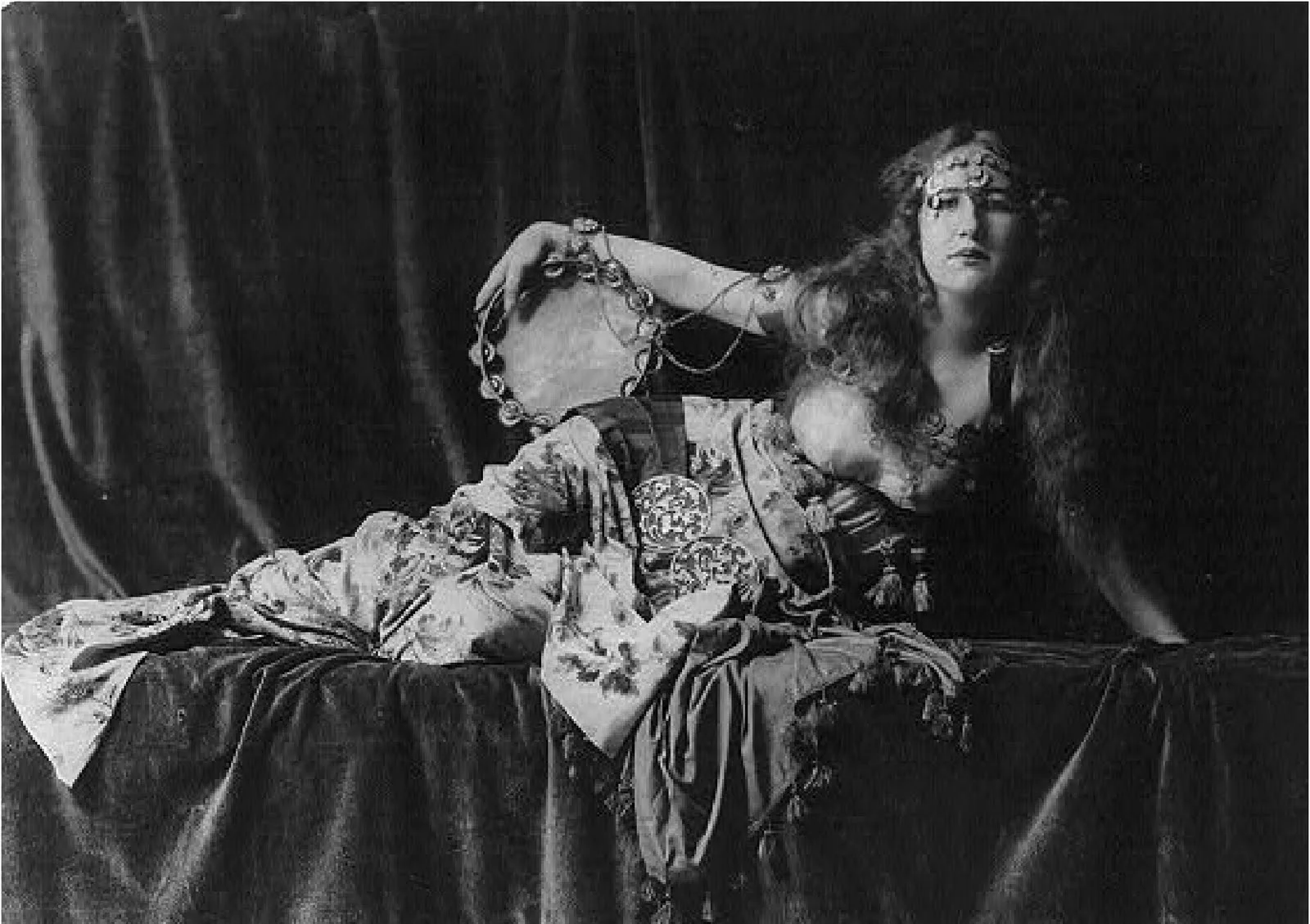Discover the history, symbolism and traditions of this joyful May Day sabbat: a Beltane ritual, flower crowns, Maypoles, fire festivals and wild Fae magic.
The last breath of spring lingers in the air, thick with the scent of the first blooming flowers and fresh-cut grass. The world is humming — bees drowsily drift between blossoms, the sun lingers a little longer each day, and the Earth is alive with a feverish energy. By nightfall, bonfires will blaze, ribbons will wind around the Maypole, and laughter will ripple through the warm evening air. This is Beltane, the fire festival of passion, fertility and abundance.
Celebrated on May 1, Beltane is the great turning of the wheel that marks the transition from spring to summer. The name comes from the Celtic god Bel, meaning “Bright One,” and tene, meaning “fire” — a fitting name for this exuberant festival. As one of the most joyous (and sensual) of the Wiccan sabbats, Beltane calls for revelry, creativity and connection.
The History and Traditions of Beltane
Beltane is one of the four great Celtic fire festivals, alongside Samhain, Imbolc and Lughnasadh. It marks the transition from spring to summer, when the world bursts into life, and the veil between realms grows thin.
For the ancient Celts, Beltane was a time of protection, purification and fertility. Great bonfires were lit, and livestock were driven between twin fires to ensure their health and prosperity for the coming season. These fires were believed to hold magical properties, warding off disease and evil spirits. People also leaped over the flames — sometimes for luck, love or fertility, and sometimes as a form of personal purification.
But Beltane’s most infamous tradition was the greenwood marriage. On this night, couples would disappear into the woods to celebrate the fertility of the land in a very literal way. These unions weren’t necessarily permanent marriages — some lasted only for the night, while others could become long-term partnerships. Children conceived during Beltane were sometimes referred to as “merry-begots”, and the festival itself was deeply tied to the idea of sacred union — both between human lovers and between the Earth and the Sun.
Beltane and the Rise of Christianity
Like many pre-Christian festivals, Beltane’s fiery revelry and fertility rites didn’t sit well with the Church. While Christianity was often willing to absorb and adapt certain pagan customs — like turning Yule into Christmas or Ostara into Easter — Beltane’s more uninhibited celebrations were harder to sanitize.
The festival’s bonfires, rituals and open expressions of sexuality were seen as dangerously pagan. The idea of couples disappearing into the woods for greenwood marriages clashed with Christian notions of monogamy and morality. By the Middle Ages, efforts were made to suppress Beltane practices, often by demonizing the festival as a time of witchcraft and devilry.
However, May Day traditions proved too beloved to fully erase. The Church allowed some aspects to remain, especially the Maypole dance, which was reframed as a community event rather than a fertility ritual. Meanwhile, Beltane’s bonfires persisted in rural areas, particularly in Scotland and Ireland, though they were often rebranded as local saint celebrations.
The Protestant Reformation, however, took a harsher stance. Many Beltane traditions, including fire-jumping and fertility rites, were outlawed, and in some cases, participating in these customs was enough to get someone accused of witchcraft. The association between Beltane and witches was strong — even in the 17th century, Scottish minister Robert Kirk wrote about the “Fairy Faith,” warning that Beltane was a time when spirits and witches roamed freely.
Despite centuries of suppression, Beltane never truly died. In the modern era, the festival has experienced a revival among Wiccans, Pagans and folklorists, who have reclaimed its joyful, fiery essence. Today, Beltane is once again celebrated with bonfires, dancing and rituals — a testament to the resilience of ancient traditions.
Myths and Folklore of Beltane
Beltane’s fires burn in honor of Bel, the bright and shining god of light, often associated with Belenus, a solar deity worshiped across Celtic Europe. He was seen as a protector, guiding the transition from the gentle warmth of spring to the full power of summer. In some traditions, Bel’s fire was said to purify, bless and invigorate all who passed through it — hence the ancient tradition of driving cattle between Beltane bonfires for protection.
But Beltane isn’t just a time of fire — it’s also a time of Fae magic. Like Samhain, Beltane is a night when the veil between worlds is thin, making it easier for spirits and fair folk to slip through. Unlike Samhain, when ghosts and ancestors visit, Beltane belongs to the Fae. These aren’t your delicate, winged flower fairies; Beltane’s fae are wild, mischievous and often dangerous.
According to folklore, Beltane night is a time when:
The Sidhe (fairy folk) roam freely, seeking offerings and sometimes playing tricks on unsuspecting mortals.
Travelers may stumble into fairy rings and be spirited away for what seems like hours — but when they return, years have passed.
Leaving offerings of milk, honey or bread outside your door will appease the Fae and ensure they don’t cause trouble in your home.
Many old stories warn against speaking to or making deals with the Fae on Beltane, but others claim it’s the perfect night to seek their blessings — if you know how to ask. Whether you honor them with gifts or steer clear of their mischief, there’s no denying that Beltane is a night of wild, untamed magic.
Traditions of Beltane
Beltane is a festival of fire, fertility and revelry, celebrating the height of spring and the turning of the wheel toward summer. It’s a time to embrace passion, creativity and abundance — whether that’s through dancing, feasting or lighting sacred fires.
1. Jumping the Fire
Fire is at the heart of Beltane. In ancient times, cattle were driven between two great bonfires to protect them from illness and misfortune. People also leaped over the flames to bring luck, fertility or courage into their lives. Today, you can honor this tradition by lighting a candle, writing an intention and carefully passing it over the flame for a symbolic blessing. Or, heck, test your luck and jump over a bonfire. Just make sure it’s a small one, please.
2. The Maypole Dance
One of Beltane’s most iconic traditions, the Maypole dance is a celebration of energy and unity. Ribbons are woven around the pole, symbolizing the intertwining of masculine and feminine energies, though today it represents all forms of connection and creativity. If you don’t have access to a Maypole, you can braid ribbons into your hair, create a ribbon wreath, or tie ribbons to a tree as a personal tribute to the tradition.
3. Flower Crowns and Greenery
Beltane is bursting with life, love and fertility, making flowers an essential part of the celebration. Wearing a flower crown or weaving garlands honors the season’s energy, especially with hawthorn, marigolds and lilacs — traditional Beltane blooms.
4. Handfasting (Pagan Weddings)
Beltane has long been associated with sacred unions and handfastings, a form of marriage where couples’ hands are tied together with ribbon to symbolize their bond. In old traditions, these unions often lasted “a year and a day” before becoming permanent. Whether you’re renewing vows, celebrating love or simply embracing deeper connections, this is the perfect time to honor relationships.
5. Offerings to the Fae
Since Beltane is a time when the Fae walk among us, many leave offerings to stay in their good graces. Traditional gifts include milk, honey, fresh bread or mead, left outside overnight. If you’re wary of the Fae’s mischief, keeping iron or salt by your door is said to deter them.
6. Late-Night Walks and Wild Magic
Some Beltane traditions are a little more mysterious and playful. In ancient times, young couples would disappear into the woods for a night of “greenwood marriage” (ahem), returning at sunrise with flower-strewn hair and dewy skin. Others would walk barefoot in the grass at dawn, believing the morning dew held magical properties for beauty and good fortune.
Symbols of Beltane
Beltane is a festival rich in fire, fertility and wild energy, and its symbols reflect the passion and abundance of the season. Each one carries deep meaning, whether for protection, celebration or invoking the magic of May.
1. Fire
At its core, Beltane is a fire festival. The flames represent purification, passion and transformation, clearing away stagnation and ushering in the full force of summer’s energy. Whether it’s a bonfire, candle or even the sun itself, fire is the most powerful symbol of this sabbat.
2. The Maypole
A towering pole wrapped in colorful ribbons, the Maypole symbolizes union, connection and the dance of life. The interwoven ribbons represent the intertwining of energies — historically seen as masculine and feminine but now recognized as a celebration of all forms of harmony and creativity.
3. Flowers and Greenery
Beltane is a time of full bloom, and flower crowns, garlands and fresh-cut blossoms embody the beauty and fertility of the earth.
Hawthorn (the “May tree”) is sacred to Beltane, representing protection and love.
Lilacs and marigolds bring joy and blessings.
Oak leaves and ivy symbolize strength and endurance.
4. The Fae
Beltane is one of the two times of the year when the veil between worlds is thin, making the Fae and spirits of the land more active. Many leave offerings of milk, honey and bread to honor them, while others take precautions to avoid their mischief.
5. The Green Man and the Goddess
The union of earth and sky, god and goddess, life and fertility is a central theme of Beltane. The Green Man, a leafy-faced figure found in old carvings and myths, represents the wild, untamed energy of nature. His counterpart, often depicted as the May Queen or a flower goddess, embodies fertility, beauty and the earth’s abundant gifts.
6. Ribbons and Knots
Weaving, braiding and tying knots are common Beltane practices, symbolizing the intertwining of forces, whether in relationships, creativity or personal power. Many use ribbons in Maypoles, hair braids, handfasting ceremonies or small intention charms to honor the magic of the day.
7. The Color Red
Red is the color of passion, fire and vitality, making it the perfect hue for Beltane. Wearing red, lighting red candles, or using red flowers invokes the bold energy of the season, fueling creativity, love and courage.
A Simple Beltane Ritual
This ritual honors Beltane’s fire, passion and fertility — whether that means love, creativity or personal growth. You’ll invoke the energy of the season with fire, flowers and a rhyming chant to set your intentions ablaze.
You’ll need:
A red or orange candle (or a small fire, if safe)
A ribbon (any color that calls to you)
A flower or sprig of greenery (hawthorn, lilac or oak if possible)
A small bowl of honey or milk as an offering
The Ritual
1.Set the scene: Find a quiet place, indoors or outside. Cast a magic circle if you want. Light the candle and take a deep breath, imagining yourself surrounded by the warmth of a Beltane bonfire.
2. Call the fire’s blessing: Hold your hands over the flame (at a safe distance) and say:
Fire bright, passion’s light,
Burn away the dark of night.
Bless this time, this turning wheel,
With love and joy I dance and feel.
3. Tie your intention into the ribbon: Hold the ribbon in your hands and focus on your desire for love, creativity, fertility or abundance. Tie a knot for each wish, saying:
Bound in fire, sealed in light,
My wish takes root, my path burns bright.
4. Offer the flower and honey: Lay the flower beside your candle and leave the honey or milk as an offering to the spirits of the land or the Fae.
5. Let the fire carry your intention: Pass the ribbon briefly over the flame or simply hold it close, infusing it with Beltane’s energy. Keep the ribbon on your altar, tied to your wrist or beneath your pillow to let your wish grow.
6. Close with gratitude: Blow out the candle and whisper a final blessing:
Beltane’s fire, warm and bright,
Guide my heart through day and night.
Feasting for Beltane
Beltane is a festival of abundance, passion and pleasure, making feasting an essential part of the celebration. Foods that are sweet, fiery and full of life embody the spirit of this sabbat, honoring both the earth’s bounty and the traditions of the past.
Traditional Beltane Foods
Honey Cakes and Mead: Honey is sacred to Beltane, representing fertility and sweetness. Bake honey cakes, oatcakes or shortbread, or sip on mead to honor the old ways.
Dairy and Fresh Cream: In Celtic traditions, milk was often offered to the spirits of the land for fertility and protection. Enjoy cheeses, whipped cream or even a glass of milk as a nod to the past.
Seasonal Fruit and Herbs: Spring’s fresh berries, cherries, citrus and edible flowers are perfect for Beltane. Try strawberries dipped in honey or a salad with basil, mint and violets for a fresh, magical touch.
Spiced and Fire-Infused Dishes: Beltane is a fire festival, so foods with a bit of heat — like spiced nuts, hot honey or roasted peppers — connect to the day’s energy.
Bannocks and Oat Breads: Traditionally baked on Beltane morning, these simple, rustic breads are symbols of prosperity. Serve with butter and honey for a warm, grounding feast.
Beltane Punch: Mix fruit juices, a splash of something bubbly (like sparkling water or champagne), and fresh herbs for a refreshing, celebratory drink.
A Simple Beltane Honey Cake Recipe
This easy honey cake is perfect for Beltane feasting.
You’ll need:
1½ cups flour
½ cup honey
½ cup butter (softened)
1 egg
½ teaspoon cinnamon
½ teaspoon nutmeg
½ teaspoon baking soda
½ cup milk
Instructions:
1. Preheat the oven to 350°F (175°C).
2. In a bowl, mix the butter and honey until creamy.
3. Add the egg, then stir in cinnamon, nutmeg and baking soda.
4. Alternately add flour and milk, mixing well.
5. Pour into a greased pan and bake for 25-30 minutes, or until golden.
Serve warm with butter, honey or fresh fruit — and don’t forget to leave a small piece as an offering for the Fae!
Crafting for Beltane
Beltane is associated with creativity, making it the perfect time for hands-on magic. Whether you’re weaving flower crowns, braiding ribbons or crafting charms, these simple projects help infuse your celebration with personal intention and seasonal energy.
Make a Flower Crown
Beltane is a time of full bloom, and wearing a flower crown connects you to the beauty and abundance of nature.
You’ll need:
Fresh or dried flowers (hawthorn, lilac, marigold or whatever calls to you)
Flexible floral wire or a grapevine base
Green floral tape or twine
How to make it:
1. Shape the wire or vine into a circle that fits your head.
2. Use floral tape or twine to attach flowers, weaving them into the base.
3. Wear your crown during Beltane rituals or celebrations — or leave it as an offering for the Fae.
Create a Beltane Fire Charm
This simple charm invokes passion, protection and transformation, perfect for Beltane’s fire energy.
You’ll need:
A small red or orange pouch or piece of fabric
Dried herbs (cinnamon for passion, rosemary for protection, thyme for courage)
A small stone (carnelian, garnet or sunstone)
How to make it:
1. Place the herbs and stone inside the pouch.
2. Hold it over a candle flame (briefly and safely) and say:
Fire bright, bless this charm,
Bring me passion, love and warmth.
3. Keep it on your altar or carry it for fiery inspiration.
Decorate a Beltane Tree
In ancient traditions, Beltane trees were adorned with ribbons, flowers and charms to honor nature’s energy.
How to do it:
1. Tie ribbons, bells or small trinkets to a tree in your yard or local park.
2. Whisper a wish or blessing as you tie each ribbon.
3. Leave an offering of honey, milk or bread for the spirits of the land.
Celebrating Beltane: Fire, Passion and Magic
Beltane is a festival of fire, passion and abundance — a time to revel in the warmth of the season, dance with wild joy, and set intentions that burn as brightly as the bonfires of old. Whether you’re jumping the flames, weaving ribbons, feasting on honey cakes, or whispering wishes to the Fae, this sabbat invites you to embrace life’s pleasures and celebrate the magic of May.
So light a candle, sip something sweet, and let Beltane’s fire ignite your dreams, desires and creativity. The wheel is turning, the Earth is alive, and the night is filled with wild magic. –Wally

